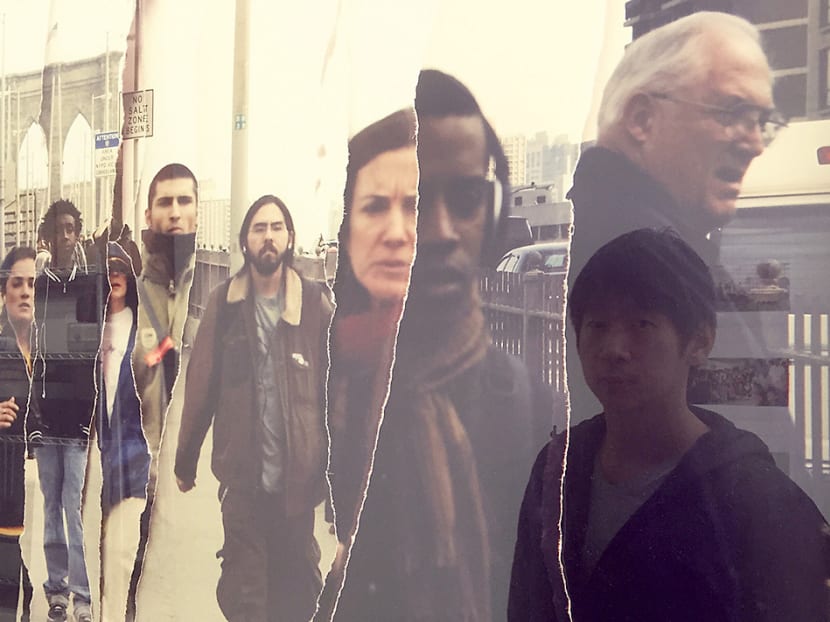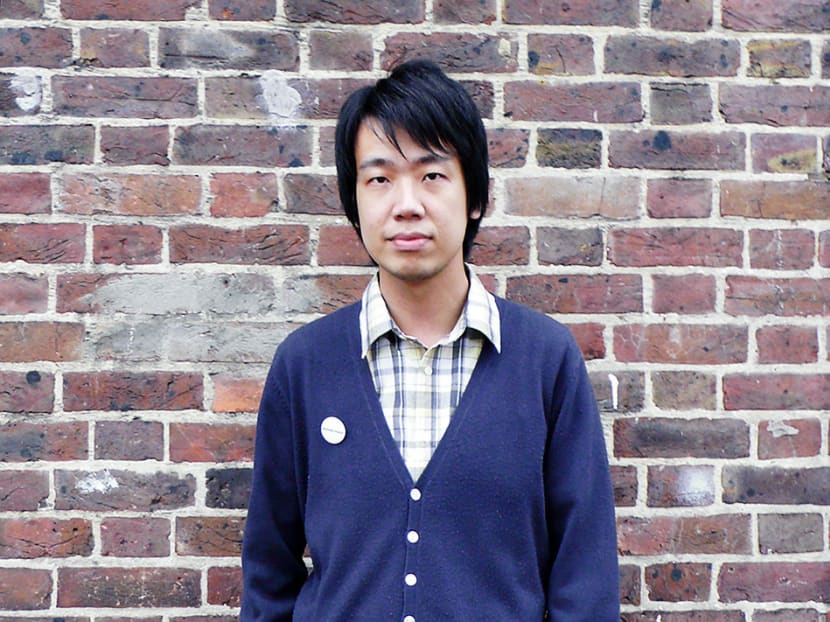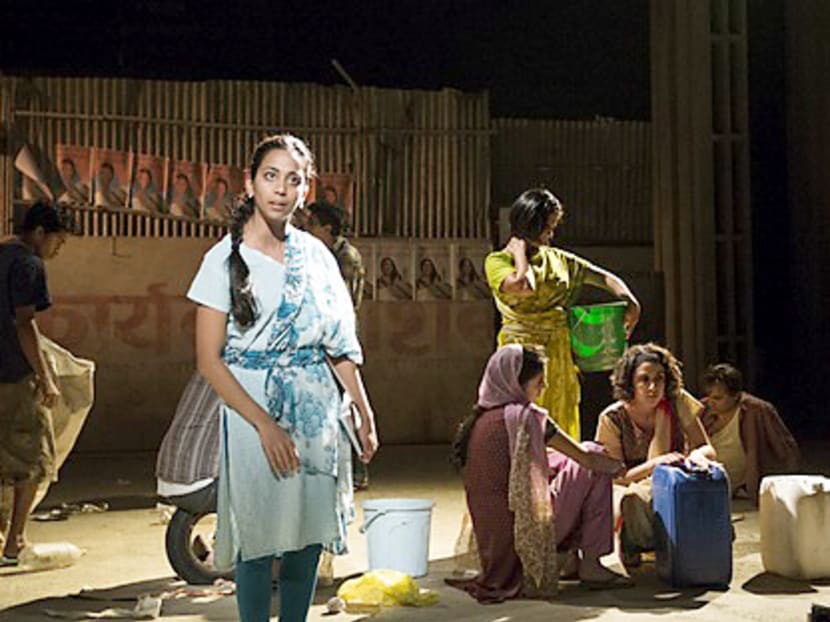Making art in a foreign land
SONG-MING ANG



SONG-MING ANG
Focusing on music as a subject in his art projects and performances, Song-Ming Ang has been based in Berlin, Germany, since 2011, when he started his residency at the acclaimed Kunstlerhaus Bethanien. The 34-year-old sees music as a “pervasive phenomenon”, and his art seeks to illustrate the relationships we – as individuals and as a society – have with music.
He is now working on a series of events for a short residency at Camden Arts Centre in London, as well as an installation for the 14th Istanbul Biennial organised by the Instanbul Foundation for Culture and Arts.
To Song-Ming, making art is not about making a point, but about sharing perspectives and having a conversation.
Why Berlin?
I feel that I can learn a lot here. There are many artists who exhibit and live in Berlin, and many galleries and institutions to see art. Berlin is also a place where people feel acutely connected with the past, because of its history. The memories of the Second World War and East Germany are still fresh. Germans also tend to respect craft and tradition a lot, while being dedicated to research and innovation.
Do you miss Singapore? How do you stay connected with the art scene in Singapore?
Singapore is, for all its quirks, a wonderful city. And of course, I miss my family and friends. I return home about twice a year – usually a longer stay when I have a bigger exhibition to set up, and then a shorter visit to see my family. I feel very connected to the art scene in Singapore. I exhibit here often, and I keep up with things through newsletters and social media.
How has social media played a role in your work? Do you find it a challenge to be heard amid the relentless social media white noise?
I use social media to share updates on my work, and also to share articles on art and society that I believe are worth sharing. I don’t think so much about cutting through the noise to be heard, and try to refrain from making self-indulgent posts, as a way of being considerate to others.
Creating and competing in a culturally diverse field obviously has its advantages, but have you ever felt like the token Asian? Ever felt shoved in the wrong category, or simply misunderstood because peers and/or organisers were eager to be seen as inclusive for the sake of being inclusive?
Thankfully, no. I think Germans tend to be quite objective, and are generally critical thinkers who can make sensible decisions. It’s also very much about whether you choose to play up to your identity. There’s a joke in the art world that goes, ‘if you’re Asian, when in doubt, use rice’, and I don’t really do that.
There’s much to be said about swimming in a bigger pond, but in a world where quality can get drowned out by sheer volume, have you ever felt lost in the international landscape as compared to the local market?
I don’t think it’s so much about the international landscape versus the local market. It’s more a question of whether to prioritise quality or quantity. This is something artists have to confront – the more you produce, the less time you have to reflect and improve. But if you prioritise quality, you might lose out on gaining the momentum needed for circulating and selling works. I don’t feel good making bad artwork, so I’m going for quality first.
Any tips for local artists aspiring to make it on the world stage?
I don’t think I’ve made it on the world stage, but I think you have to be mentally prepared to live outside of your own country. Things will inadvertently get rough.
JOHN CLANG
New York-based photographer John Clang, 42, is known for his strong and deeply personal visual take on urban and contemporary themes such as identity, loss and alienation.
The first photographer to receive the Designer of the Year award (2010) at the annual President’s Design Award, John’s subjects are often tied to his daily life, and include family, friends and landscapes.
What are you working on now?
I’ve just finished a series of work based on an everyday man in his forties who is possibly going through a midlife crisis. The work was created every day for the entire duration of 2014. I’m also directing an art film together with my co-director Chow Wai Thong. It will be going into post-production next month.
Why New York?
In 1997, my wife woke up at 4am and told me that we need to be “hungry” again. New York is like a cave-cum-studio for me. I live there and just do my work. No distractions.
Is there anything you wish you’d known about New York before you moved there?
I wish someone had told me that its winter can be brutally cold. I moved there in January 1999 with a G2000 jacket that one can wear to go to parties in Singapore.
Do you miss Singapore?
Missing Singapore is an understatement. I just had bah kut teh and curry chicken last week, all cooked by my wife with the aid of A1 and Prima Taste (ready-to-cook products).
It’s nice to think that art speaks for itself, and of course, sometimes it does. But more often than not, it’s informed by culture, and some works are more accessible for audiences with a shared cultural background. What are some of the challenges of communicating with international audiences who don’t have the cultural vocabulary to place your work?
That’s the exciting part of creating art. One should do it based on his own understanding of self and culture, not simply to please the audience. The world is currently moving at a pace that any cultural differences will be acknowledged and be easily accessible to the audience. I prefer to base my work on a more basic human level, instead of focusing on major social or ecological issues. And I feel that most people, regardless of the varied cultures, fundamentally resonate and respond to similar feelings and yearnings.
Do you see social media as an opportunity to promote your work?
It is an opportunity for many youngsters to present their work to the public. However, if one is not self-critical, it’ll become a vanity exhibition platform where all your friends come to the opening and say congratulations, in this case, ‘likes’.
Any advice for local photographers aspiring to make it on the world stage?
Don’t think in term of the world stage. Think about what’s true about your art. Does it stir your heart? The world is smaller than you think.
ANJANA VASAN
In 2010, Anjana Vasan left our sunny island for the United Kingdom to train at the Royal Welsh College of Music and Drama in Cardiff. She graduated two years later, moved to London to pursue the many opportunities available, and has not looked back since.
The 29-year-old actor-singer-songwriter is currently performing in two plays at the National Theatre. One is Behind the Beautiful Forevers by David Hare and directed by Rufus Norris (based on the non-fiction book by Katherine Boo) and the other is Dara, a Mughal history play adapted by Tanya Ronder and directed by Nadia Fall.
Is there anything you wish you’d known about London before you moved there?
Yes, that it’s near impossible to find good, authentic and cheap Singaporean food.
What has been your most memorable performance in London?
My current one. Working at the National Theatre and with the likes of David Hare is surreal.
Have you ever felt like the token Asian actor in London?
I’ve gone up for Asian roles and others that have nothing to do with my ethnicity, but I’ve never been made to feel like a ‘token’ or an outsider on any job I’ve worked on. I couldn’t audition for something I was uncomfortable to play. Is there a need for more diversity in the arts? Absolutely. Is it harder for Asians, minority ethnic groups and women? Yes. But the conversation about diversity is growing louder and stronger in the scene here and I do think the tide is shifting, albeit slowly. The frustration of challenging stereotypes or breaking glass ceilings is not unique to any field, here or in Singapore.
How has social media played a role in your work? Do you embrace it and see it as an opportunity?
I’m ambivalent about social media. It’s useful to an extent but I don’t rely on it for work and I don’t usually share personal things on public social media pages like Twitter. I like to keep that separate. I think ambiguity and mystery can be useful to an artist’s work. As an actor, I want to disappear into roles I play, not have my personality overshadow them. But so much of social media seems to be about cultivating a persona or projecting a version of yourself that’s not always true.
What are some tips you would give local actors aspiring to make it on the world stage?
There’s no such thing as ‘making it’. There is always an element of struggle that you have to embrace. If you are doing it for the end goal of fame or money, don’t do it.
Produced by the TODAY Special Projects Team





